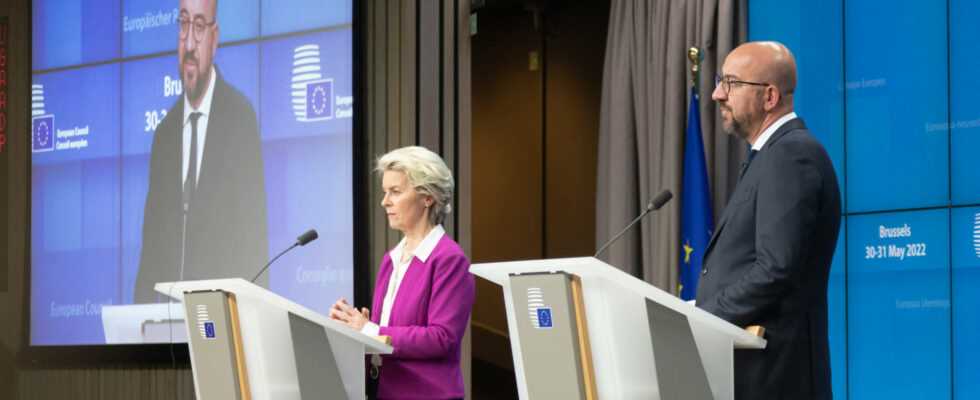An agreement for a sixth package of sanctions was reached overnight from Monday to Tuesday at the European Council in Brussels. The 27 member countries of the European Union have approved an embargo on Russian oil, to stop most imports. A progressive embargo which will be put in place by the end of the year.
90% of Russian oil imports halted
This stoppage of imports concerns oil transported by ship, a market which represents two-thirds of European purchases of Russian oil. The other third, which is therefore not affected by this embargo, is crude oil transported by pipeline.
It was a non-negotiable point for Hungary, which depends 65% on Russian oil, Viktor Orban threatening to use his veto. If there is no total European embargo, Germany and Poland have pledged to stop their pipeline imports. Consequence: within six months, 90% of Russian oil imports into the European Union should be interrupted.
The objective is clear: to try to stop the financing of Russian military capacity. “We want to stop the Russian war machine and stop the funding of this military capability by implementing sanctions that aim to put pressure on the Kremlin,” said Charles Michel, President of the European Council. These sanctions “will make it possible to ban Russian oil with a temporary exception concerning oil that comes by pipeline. To be very clear, this means that there is an immediate impact of 75% of Russian oil that is targeted by this measure, this means that before the end of the year, nearly 90% of Russian oil imported into Europe will be covered by this measure”, he said.
Last year, the bill for Russian oil imports into the Union amounted to 80 billion dollars, four times more than that of gas. And since it is a question of sanctioning the Russian economy, another agreement was sealed in Brussels: the exclusion of Sberbank, the main Russian bank, from the Swift international financial system.
European funding will be “long-maturity loans”
The leaders also approved the granting of nine billion euros to the Ukrainian government to cover its immediate cash needs to run its economy. kyiv has quantified its needs at five billion dollars per month. European financing will take the form of “long-maturity loans” with subsidized interest rates, a European source said.
The two-day summit is also due to address on Tuesday the consequences of the war-related food crisis and the continent’s energy transformation to do without Russian gas.
